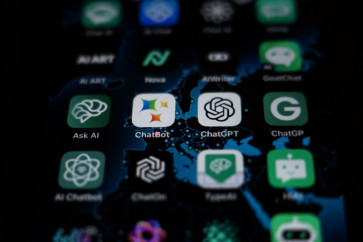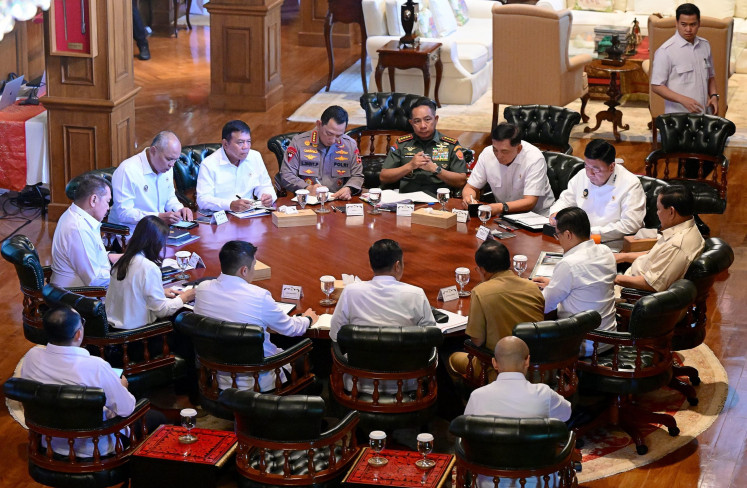Popular Reads
Top Results
Can't find what you're looking for?
View all search resultsPopular Reads
Top Results
Can't find what you're looking for?
View all search resultsRI, US partner in development
Indonesia and the US are preparing for the second joint commission meeting (JMC), which was set up last year as part of efforts to strengthen bilateral relations between both countries
Change text size
Gift Premium Articles
to Anyone
I
ndonesia and the US are preparing for the second joint commission meeting (JMC), which was set up last year as part of efforts to strengthen bilateral relations between both countries. Indonesia’s Foreign Ministry director general for American and European affairs Retno L.P. Marsudi talked to The Jakarta Post’s Mustaqim Adamrah and Abdul Khalik on the progress of the joint commission ahead of the second Indonesia-US JMC in Nusa Dua, Bali, this week.
Question: Can you explain how far the relations have progressed since US President Barack Obama’s visit last year?
Answer: We have established a mechanism to monitor the progress of the joint commission’s works through six working groups. The working groups specialize on democracy, civil society, defense and security, environment and climate change, energy, education and trade and investment. We have score cards that are more measurable, more structured and easier to monitor progress for each working group.
If there is a need for us to establish a new working group, then we’ll work that out. For example, there is an interest to establish a working group on science and technology at the technical level because we already have a memorandum of understanding on science and technology we signed in 2010 in advance of Obama’s visit.
About democracy, how do you explain the working group’s achievement in this field?
In the working group on democracy and civil society, Indonesia and the US are partners in democracy and development. The US supports the Bali Democracy Forum, while we attend an event on democracy held there on invitation.
Retno L.P. Marsudi: JP/P.J. Leo
There is also an interfaith dialogue, which is quite new. We have already done that once and we are going to have it again. It looks cliché because we have [other interfaith dialogues] with other countries. But it gives a different meaning with the US because the issue had always been Islam versus the West, which is always deemed in [the US], before Obama took office.
It is that stigma we are trying to change one step at a time, based on Obama’s statement that “Islam is not enemy of America”. We’re pulling the string from that to give a different nuance that what he said was really true.
What about defense and security? Is Kopassus [Army Special Forces] the last barrier in the relations to grow?
Yes, it is. In the working group on defense and security, our target was to lift the ban on Kopassus. The ban was really a barrier for us to cooperate with the US in the defense and security field because it was related to human rights [violations].
It is good that the barrier has now been lifted and training has begun, though it is still in the form of capacity building programs.
We also have a memorandum of understanding on counterterrorism between the FBI and National Police.
Indonesia has a strong commitment on climate change. How does the US help us in this regard?
The US gives a grant of US$136 million, with $119 million for cooperation in science, ocean, land use, society and innovation, and $17 million for the establishment of a climate change center in Indonesia.
As one of the countries that have large areas of forests, Indonesia can be a “laboratory” [to study climate change]. Lessons learned can be shared with other countries regionally or internationally. We also have debt swap programs for tropical forest conservation.
The first debt swap program worth $19.6 million is targeted for forests in Sumatra, followed by the second program worth $19.4 million for forests in Kalimantan.
What about education?
Deliverable priorities are Indonesian students studying in the US, capacity building, language training and the Peace Corp. We want to double the number of Indonesian students in the US from 700 to 1,400 within five years.










